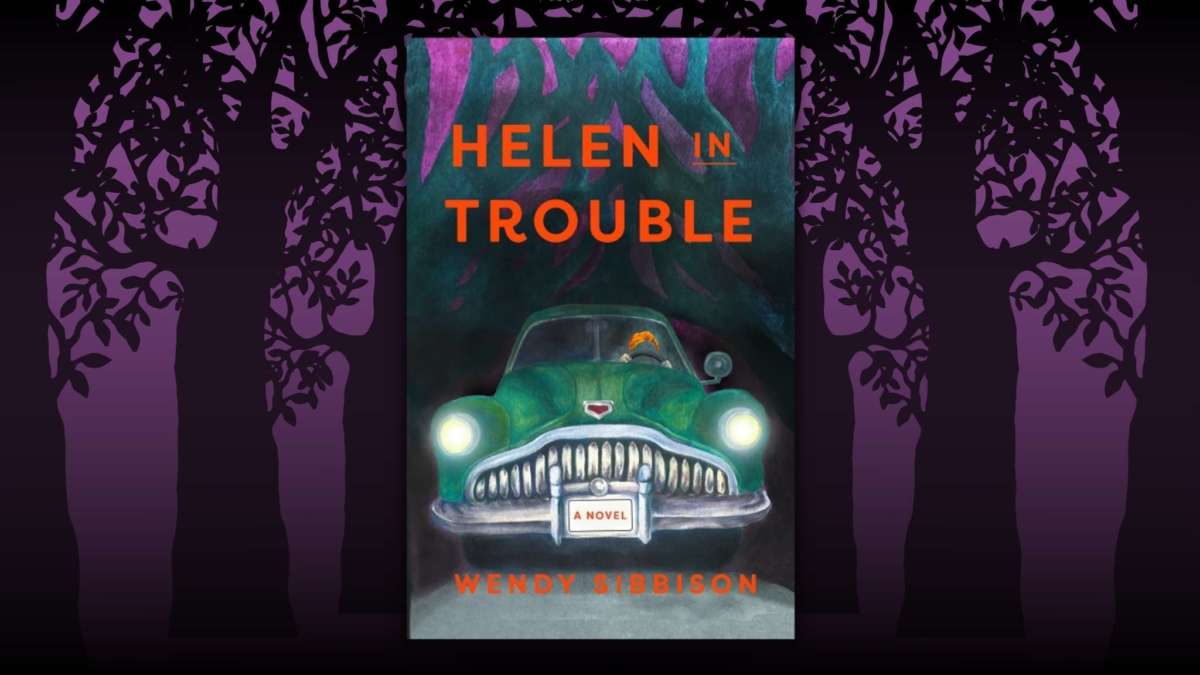“The words ‘knocked up’ … signified disaster on a mythic scale, the termination of respectability, the cancellation of any claim to future success and happiness, an irreversible and public shaming.”
While that phrase still carries a certain amount of stigma in 2022, particularly for the young and unwed, it doesn’t pack quite the pejorative punch that it did in the 1960s. Perhaps, we can thank comedies like 2007’s Knocked Up for dampening its sting. (Though, I suspect that the actual reasoning for this linguistic shift is too complex to attribute to any one piece of pop culture.) Regardless of why the phrase’s reception has changed over the last six decades, being pregnant at 16 presents serious social consequences for the protagonist in Wendy Sibbison’s wholly compassionate and humanizing historical novel Helen in Trouble.
When Helen wakes up in the library following a drunken night with her boyfriend, Quentin, her memory is hazy, and she fears, in the mix of intoxication and passion, Quentin may not have taken his usual precautions. At the moment, however, Helen has more pressing trouble to contend with: sneaking back into her rented rooms at Mrs. Hemphill’s before the woman discovers her all-night absence and reports it to her parents. Call or no call home from Mrs. Hemphill, Helen may regret attending Easters (a legendary, days-long university party after Easter Sunday) at UVA altogether when she arrives home with an unwanted souvenir.
Helen’s a smart girl, but so much about her own body remains a mystery to her. Even the brightest of 16-year-olds would find it nearly impossible to navigate the cruel and messy aftermath of sex that lies before her, especially in an era that predates the almighty Google. What is she supposed to do? Marry Quentin and become a mother? Conceal her secret and then walk away from a child? No, there has to be another option. There is … but walking through door number three is dangerous, not to mention illegal, in 1963.
Depicting pregnancy and abortion pre-Roe v. Wade, Sibbison’s historical fiction is undeniably timely in the face of current efforts to restrict and ban abortion access in the United States. Just last month (December 1, 2021), the U.S. Supreme Court heard arguments for Dobbs v. Jackson Women’s Health Organization, a case that could potentially overturn Roe v. Wade’s 1973 landmark decision. The New York Times reports that the court will likely deliver its decision in the spring or early summer of this year.
While Sibbison’s novel probes reproductive rights in the foreground, the community that surrounds Helen — her mother, her friends, women she encounters along the way — offers a striking and beautiful tableau of compassion amid the looming presence of shame. This endearing community coupled with mentions of other civil rights movements of the 1960s and Sibbison’s references to classic works of literature, from Virgil and his contemporary Sulpicia to Nathaniel Hawthorne, Simone de Beauvoir and Allen Ginsberg, makes the novel feel big, momentous. It’s no wonder Kirkus calls Helen in Trouble “a beautifully written, compassionate coming-of-age tale with subtle mythic overtones.”
If, while watching the 1987 film Dirty Dancing (another glimpse at 1963), your heart ached as Baby selflessly stepped forward to help Penny when she was in trouble, then Sibbison’s novel will do that and more. Palpably connecting the present to the past, Helen in Trouble would make a fine addition to the library of any burgeoning or mature feminist.




